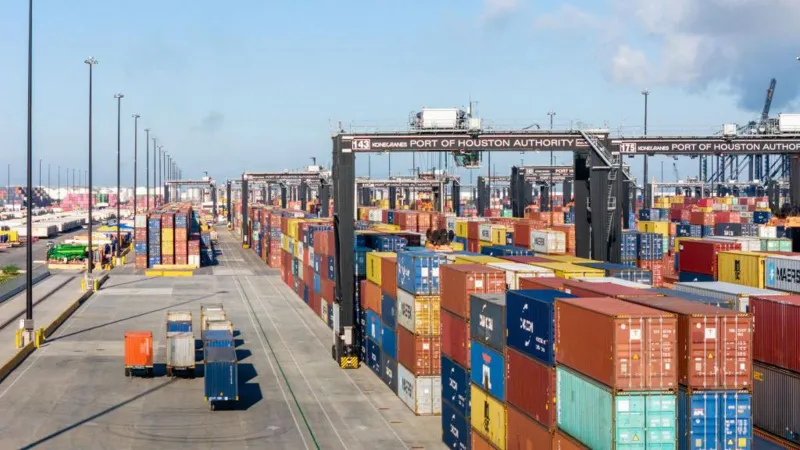A major strike by dockworkers is about to close ports across much of the US, with no end in sight. This shutdown could cause big problems for trade and the economy, especially since it’s happening right before the presidential election and the busy holiday shopping season. According to the BBC, tens of thousands of workers from the International Longshoremen’s Association (ILA) plan to walk off the job on Tuesday at 14 major ports from Maine to Texas. This will stop cargo shipments at these ports, and it’s the first time in almost 50 years this has happened.
The strike centers on a six-year contract for about 25,000 port workers who handle containers and vehicle shipments. The BBC explained that the two sides have been stuck in talks for months, and the current contract ends Monday. Union leader Harold Daggett is asking for significant pay raises and has raised concerns about jobs being taken by machines. The shipping companies, represented by the US Maritime Alliance (USMX), accuse the union of refusing to negotiate and have asked for government help to bring them back to the table.
BBC reports that port workers’ pay currently ranges from $20 to $39 per hour, depending on experience, plus benefits like bonuses tied to how much shipping is done. The union wants to raise wages by $5 per hour each year during the six-year deal. Union members say they deserve more money because shipping companies made huge profits during the COVID-19 pandemic, while inflation hurt their paychecks. The union is also warning that even more workers could strike, making the situation worse.
BBC noted that this strike will have a big impact on time-sensitive goods like food, especially items like bananas and chocolate. Ports involved in the strike handle a large amount of US agricultural exports and imports, so farmers and food businesses will feel the effects. Other industries like clothing, footwear, and European carmakers will also be hit hard, especially since many of them use the Port of Baltimore for their shipments.
Imports into the US surged this summer, with many businesses rushing to get their products before the strike began. However, BBC quoted an expert who said that while the strike might not cause immediate major economic damage, prices could go up, and some items could become scarce if the strike continues for weeks.
The economic cost of the strike is huge. BBC cited estimates that it could reduce US economic growth by at least $4.5 billion per week, and more than 100,000 people could temporarily lose their jobs. One expert told the BBC that this strike could cause a chain reaction, leading to higher shipping costs, which would hurt both consumers and businesses that rely on fast deliveries of goods.
This strike also puts President Joe Biden in a difficult position. The BBC explained that Biden has the power to pause the strike for 80 days while negotiations continue, but the White House has said he’s not planning to take action. This stand-off could affect the US election, which is just six weeks away. The economy is already slowing down, and unemployment is rising, so the strike adds even more uncertainty.
In 2002, Republican President George W. Bush stepped in to end a dockworkers’ strike on the west coast after 11 days, but Biden faces tough choices, especially since union leader Harold Daggett supported him in the 2020 election. However, Daggett has recently criticized Biden, and he even met with Donald Trump in July. According to the BBC, any chaos from the strike could hurt Democrats, but Biden also risks upsetting his allies in the labor movement just before the election.
Public support for the strike could be tested. As the BBC highlighted, Daggett has been involved in legal issues in the past, and some may still view dockworkers through the lens of old movies like the 1954 classic On the Waterfront.
However, an expert told the BBC that many people likely share dockworkers’ concerns about rising costs and the threat of automation taking their jobs.
In the end, the BBC reported that the pressure from the strike is likely to force employers back to the negotiating table with a better offer for workers.
https://www.bbc.com/news/articles/c3vkdp3rx17o

